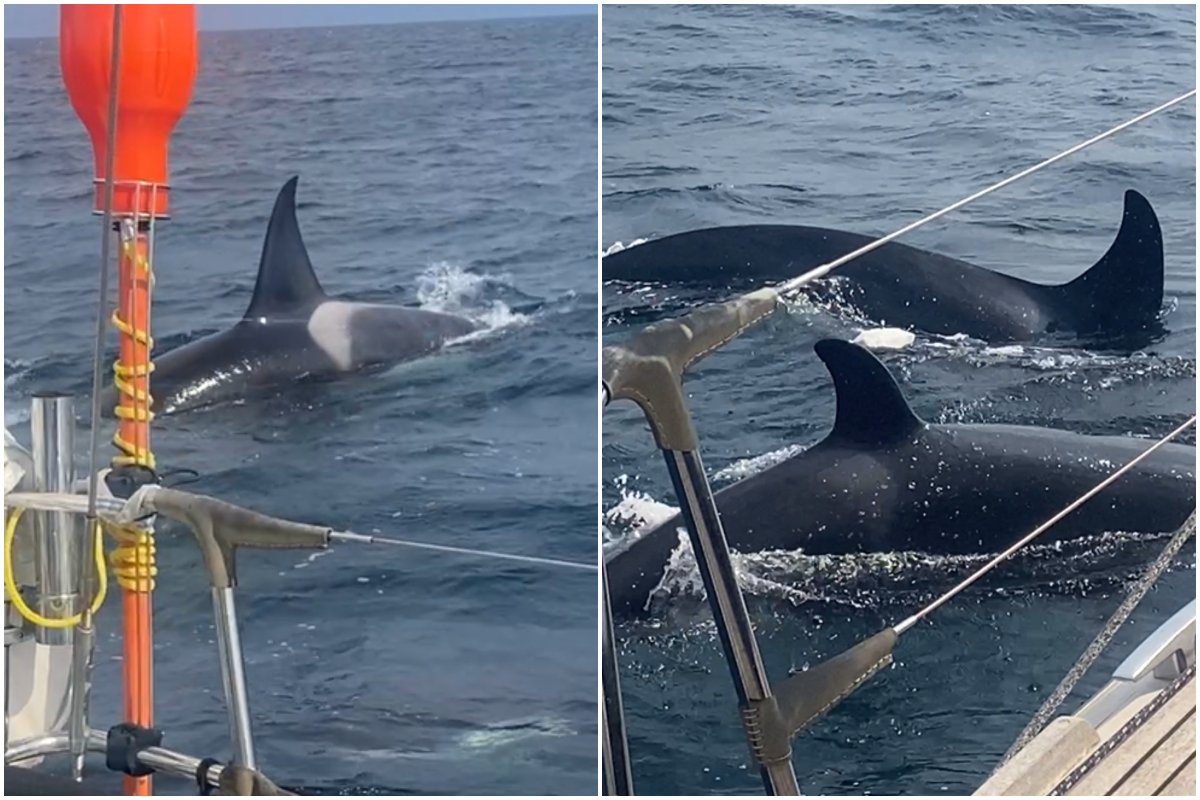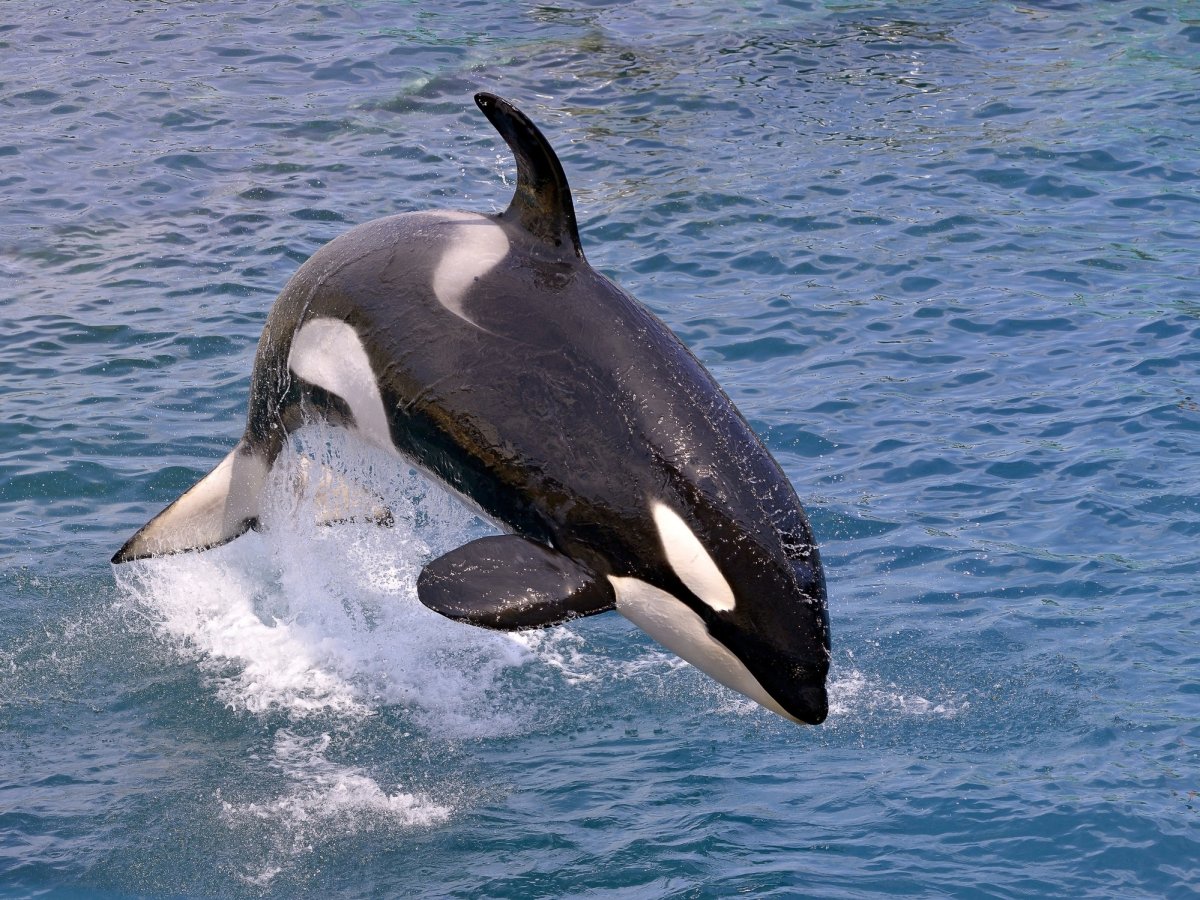Sébastien Destremau made headlines when his yacht was ambushed by a pod of orcas off the south of Spain on May 22. While many believe the killer whales might have been out for revenge, Destremau dismisses this, fearing instead that the orcas may themselves be in danger from armed retaliation from other sailors.
"Having witnessed it, it's so easy for these beasts to sink us if they want to," Destremau told Newsweek. "If it was out of revenge, I think I would have been swimming."
Destremau believes the orcas may simply have been playing or training their young to hunt. And yet, the experienced sailor—who has taken part in the Vendee Globe around-the-world yacht race—now worries about the consequences that his story may have on these creatures.

"I am very concerned about the near future for these beasts and I think we have a huge responsibility to protect these animals," Destremau said. "The problem we have is that media are emphasizing the aggression and so people are getting armed, they're getting a shotgun onboard their boat."
The incident took place while Destremau and his crew were sailing through Cape Trafalgar off the south coast of Spain aboard the sailing yacht The Lancelot.
"At first, I thought it was wind coming in really fast, as it can when you exit Gibraltar Strait," Destremau said. "And so I started to drop the sail a little bit and then I turned around again to look at where the wind was and I thought, 'Wait that's not wind, that's fish. Those are orcas!'"
The pod was moving toward him quickly.
"It was a bit scary because there were 20 of them," he said.
Destremau lowered the sails again in the hopes that the orcas would lose interest in the ship if it was stationary.
"We waited and the orcas just stopped, about 200 meters from me," he said. "Eight of them came towards us. They started to come closer and closer. They started to have a look and a little bit of a sniff and then, suddenly, 'BANG,' that was a big one."
The orcas went straight for the ship's rudder, pushing it hard with their noses.
"It's a big 15-ton boat. You don't move a boat like that very easily, but these guys just put their noses on the rudder and pushed and the boat suddenly jumped forward and started to spin," Destremau said. "The power they've got is absolutely amazing."
Within minutes, the bottom of the rudder had shattered.
"It was tough on the boat—really scary," Destremau said. "My concern was that the bottom of the boat could break because then you would have water coming in, and that means trouble.
"The shocks were really hard and really strong, they were really going for it."
Destremau's encounter is one of several such incidents in the area in the last few months, leading researchers to believe that they might have been orchestrated by a single, revenge-bent female. But Destremau was not totally convinced by the theory.
"They could crush the boat in a heartbeat if they wanted to," he said. "But they were not aggressive, they're not wanting to have a piece of you. They were just coming in very gently, placing their nose wherever they want to place it, and pushing hard. Every one of them would have a go and play a bit and push and break off a piece, and they were blowing bubbles, as well."
Orcas are highly intelligent creatures, living in groups of 10 to 20 with a complicated social structure, led by the eldest females.
"These are intelligent animals, and they are capable of extensive play and also learned behavior," Kerstin Bilgmann, a conservation biologist and research fellow at Macquarie University in Australia, previously told Newsweek. "This is most likely a playful act with no bad intention by the killer whales as no humans were attacked in any of the cases."
Destremau said that the orcas might indeed have simply been playing with the boat. But there could be an even more compelling explanation. When orcas take down a whale, they will often target the fins.

"If I was a parent orca, I'm not going to touch my living stock, because my living stock is low, so why not train them on our boats?" Destremau said. "For them, the rudder looks like a fin! [It] moves like a fin and you can play and push and grab it. And, as soon as the rudder is destroyed, they disappear."
Looking at the recent spate of "attacks," Destremau's theory still stands: each time, the orcas have targeted the ship's rudder.
What is more, of the eight orcas that approached his boat, only a few were fully grown.
"There were two or three big big ones, then five that were a bit smaller," he said. "It was mostly the teenagers that were around us."
But stories of mother orcas taking their young out for a hunting lesson do not spread as fast as fear over predatory revenge.
"It's important to get a different message across because we are human, we are the most stupid species on the planet so what are we going to do? We are not going to let them be, no, we are going to kill them," Destremau said.
"But that is a no, no, no: first, you're going to get yourself killed because they're not just going to let you shoot them. And second, it's their world, it's not ours."
Update 6/2/23, 3:08 a.m. ET: This article has been updated with further comment from Sébastien Destremau.
Update 6/2/23, 10:24 a.m. ET: This article has been updated with further comment from Destremau.
Do you have an animal or nature story to share with Newsweek? Do you have a question about orcas? Let us know via nature@newsweek.com.
Uncommon Knowledge
Newsweek is committed to challenging conventional wisdom and finding connections in the search for common ground.
Newsweek is committed to challenging conventional wisdom and finding connections in the search for common ground.
About the writer
Pandora Dewan is a Senior Science Reporter at Newsweek based in London, UK. Her focus is reporting on science, health ... Read more
To read how Newsweek uses AI as a newsroom tool, Click here.








